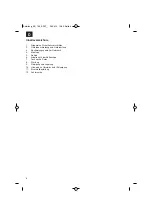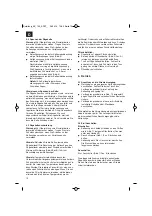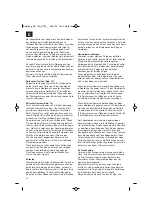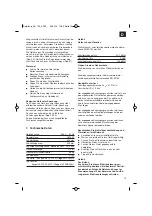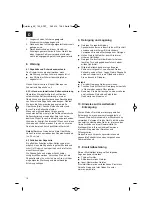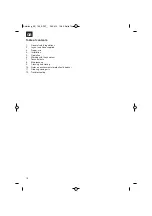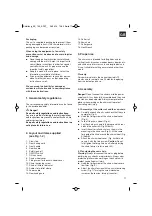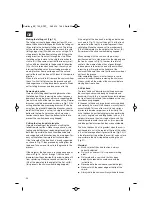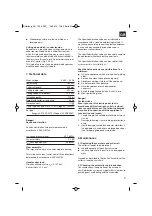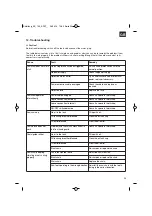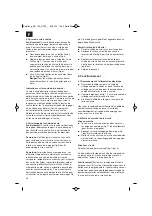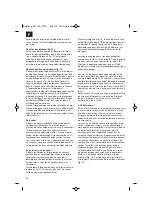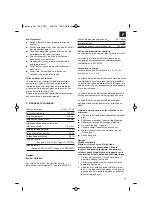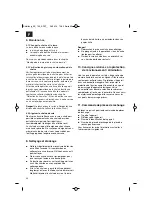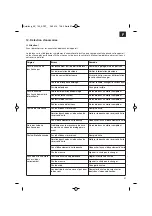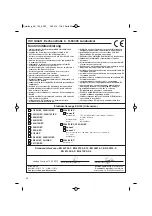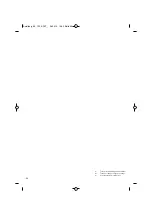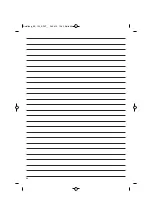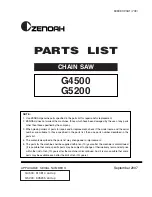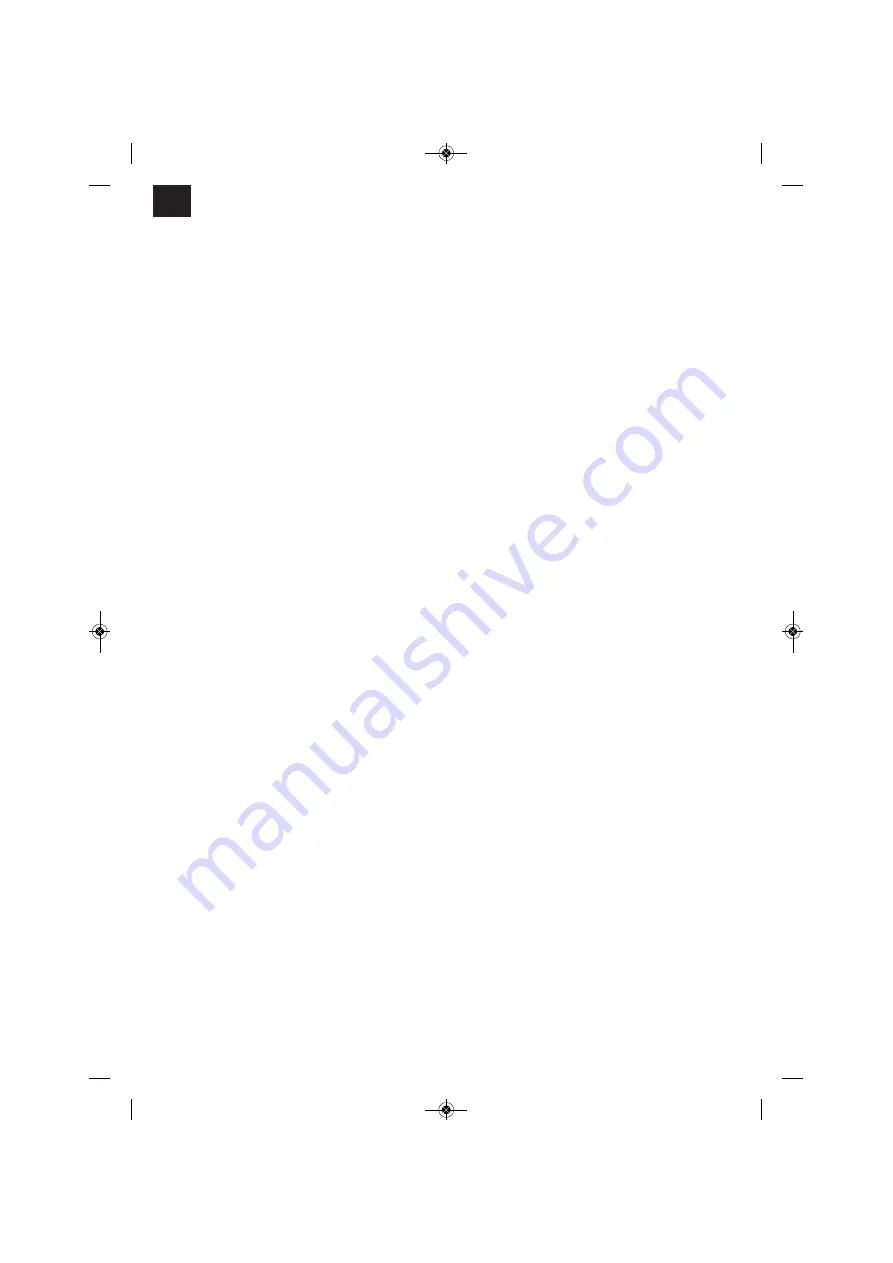
damage to the cutter rail and the saw chain. To do
this, point the tip of the cutter rail towards a smooth
surface (board, section of a cut tree) and allow the
chainsaw to run.
If an increasing oil trace becomes evident during this
process then the automatic chain lubrication system
is working properly. If no clear oil trace is evident then
please refer to the corresponding instructions in
“Troubleshooting”. If the information contained there
still fails to remedy the situation then please contact
our service department or another similarly qualified
workshop.
Danger!
Do not actually touch the surface with the tip
of the cutter rail when performing this test. Keep a
safe distance (approx. 20 cm).
8.3 Sharpening the saw chain
Effective working with the chainsaw is only possible if
the saw chain is in good condition and sharp. This
also reduces the risk of kickback.
The saw chain can be re-sharpened by any dealer. Do
not attempt to sharpen the saw chain yourself unless
you have the necessary special tools and experience.
9. Cleaning and storing
앬
Regularly clean the clamping mechanism by
blowing it out with compressed air or cleaning it
with a brush. Do not use tools for cleaning.
앬
Keep the handles free of grease so that you can
maintain a firm grip.
앬
Clean the device as required with a damp cloth
and, if necessary, mild washing up liquid.
앬
If the chainsaw is not to be used for an extended
period of time then you should remove the chain
oil from the tank. Briefly immerse the saw chain
and the cutter rail in an oil bath and then wrap
them in oil paper.
Danger!
앬
Always disconnect the mains plug before
cleaning the chainsaw.
앬
Never immerse the unit in water or other liquids in
order to clean it.
앬
Store the chainsaw in a safe and dry place out of
the reach of children.
10. Notes on environmental protection /
disposal
The device must be properly disposed of when it
reaches the end of its service life. Cut off the power
cable to prevent it being used by mistake. The device
must not be disposed of as domestic waste. Instead,
in the interests of the environment it should be
disposed of via a designated recycling or disposal
point for electrical equipment. Please contact your
local authorities for information about proper disposal
of the device in your area. Packaging materials and
worn accessory parts should also be disposed of at
the designated recycling or disposal points.
11. Ordering replacement parts
Please provide the following information on all orders
for replacement parts:
앬
Model/type of the tool
앬
Article number of the tool
앬
ID number of the tool
앬
Part number of the required replacement part
For latest prices and information please visit
www.isc-gmbh.info.
GB
22
Anleitung_EK_100_SPK7__ 28.04.14 14:49 Seite 22
Summary of Contents for EK-100
Page 4: ...4 5 4 8 6a B A 7 6b 10 Anleitung_EK_100_SPK7__ 28 04 14 14 49 Seite 4 ...
Page 5: ...5 10 9 12 13 11 A B 14 A A A C C B Anleitung_EK_100_SPK7__ 28 04 14 14 49 Seite 5 ...
Page 6: ...6 16 18 19 17 20 A A A B B B 15 A D C B Anleitung_EK_100_SPK7__ 28 04 14 14 49 Seite 6 ...
Page 7: ...7 22 21 24 23 Anleitung_EK_100_SPK7__ 28 04 14 14 49 Seite 7 ...
Page 36: ...36 Anleitung_EK_100_SPK7__ 28 04 14 14 49 Seite 36 ...
Page 37: ...37 Anleitung_EK_100_SPK7__ 28 04 14 14 49 Seite 37 ...
Page 38: ...38 Anleitung_EK_100_SPK7__ 28 04 14 14 49 Seite 38 ...
Page 39: ...39 Anleitung_EK_100_SPK7__ 28 04 14 14 49 Seite 39 ...
Page 40: ...EH 04 2014 01 Anleitung_EK_100_SPK7__ 28 04 14 14 49 Seite 40 ...

